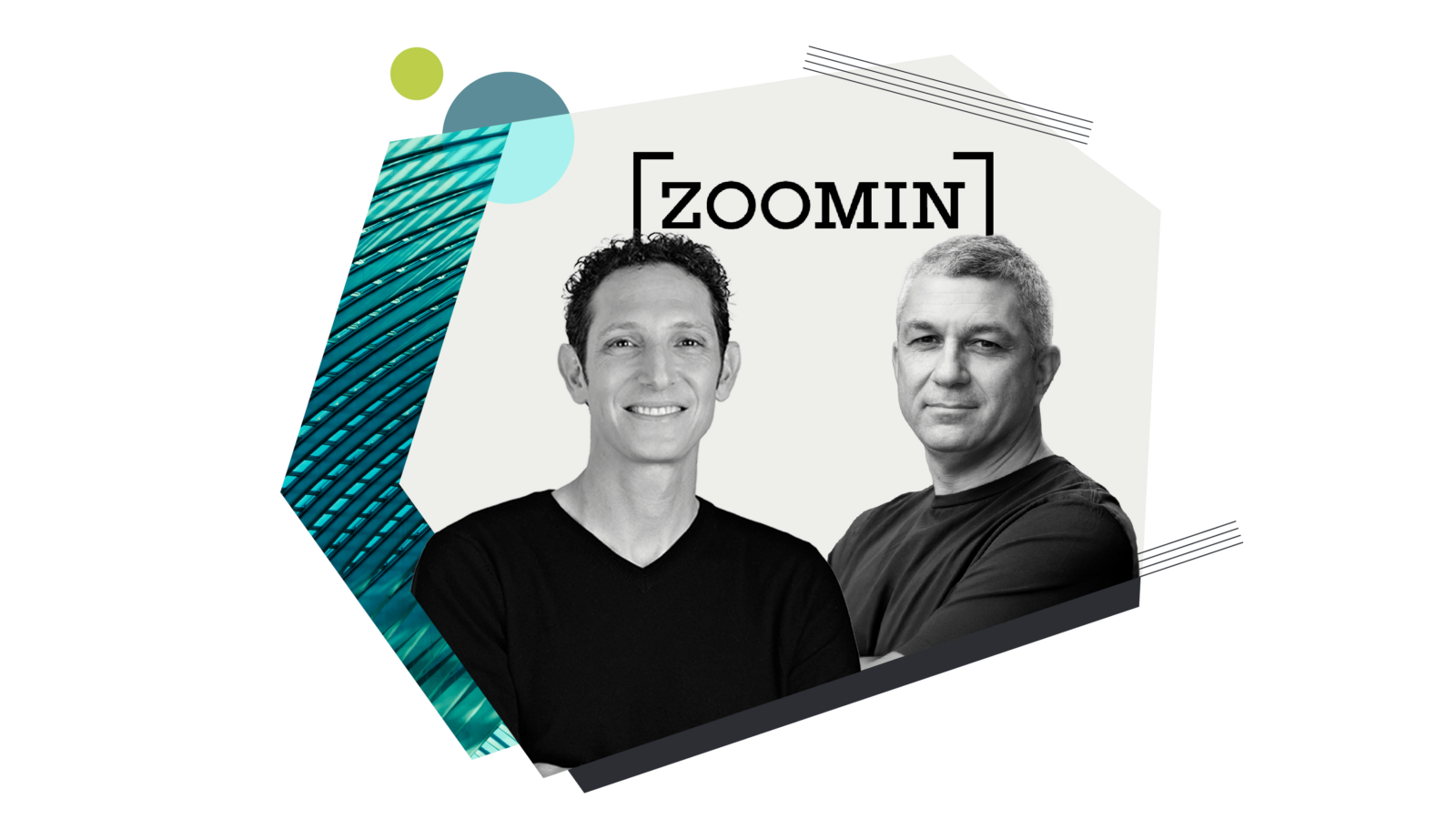Zoom CEO Eric Yuan on trusting your gut, learning from failure, and leaving behind an enduring legacy
CEO and founder Eric Yuan shares the secrets to his success, plus new lessons learned from a record-shattering year of growth.
In 1996, Eric Yuan spent four months in Japan sharpening his skills as an engineer. He’d been daydreaming about entrepreneurship, but this itch became an irrepressible drive when he saw Bill Gates deliver a keynote speech at a conference. Eric became convinced that the internet was the future—and that he needed to move from his native Beijing to Silicon Valley to be part of it.
At first, his visa was denied eight times. But Eric would not take no for an answer. Finally, one of the co-founders of Webex sponsored his H1 working visa. “Looking back, it was good to practice my perseverance,” says Eric.
Today Eric Yuan has achieved jaw-dropping success that places him in a very small circle of tech elites. Pre-pandemic, Zoom already had millions of daily active users worldwide, earning reports that dramatically outpaced analyst expectations, and a wildly successful IPO in March 2019. But since the pandemic, they’ve grown by an order of magnitude.
At its peak in December 2019, Zoom had 10 million daily meeting participants. By April 2020 this number shot up to 300 million. The platform now boasts users in more than 80 countries, and its mobile app was number one in the Apple Store. What’s more, Zoom has gone from an enterprise-focused platform to one entrenched in daily life for millions of ordinary people—from heads of state to late night TV shows to family weddings.
Eric sat down with us on the Cloud Giants podcast to reflect on a record-breaking year he could have never dreamed up—the extraordinary highs, the unimaginable pressure, and the surprising lessons learned along the way.
Stay strong in your convictions, even if others do not believe in you
When Eric joined Webex as a founding engineer, he witnessed the transformation of this first generation video and collaboration product into a major player that was acquired by Cisco in 2007. He’d also worked his way up to VP of Engineering. But by 2011, Eric was no longer happy.
“Every time I talked to a Webex customer, I was embarrassed,” he says. “I did not see a single happy customer.” Eric realized there was no way to fix all the modern problems plaguing customers by tweaking legacy Webex software. He was convinced that the only way to win back disenchanted customers was to build a new solution from the ground up.
But when he presented his ideas to his coworkers, they were not sold on cannibalizing their existing product. They also doubted whether Eric’s proposal was even possible. In the face of this tremendous pressure from naysayers to abandon his ideas, Eric trusted his gut. He decided to tender his resignation and start his own company.
Buoyed by a strong instinct that he could build something superior, Eric began creating the product we now know as Zoom. The first iteration took him only one year. “I like Nike's mantra,” says Eric. “Just do it. A lot of my friends told me, ‘Eric, please don’t do it.’ But if it's your dream, you need to ignore them.”
Churned customers are a treasure trove of insights
While you may lament the loss of each churned customer, Eric advises other founders not to lose sight of the opportunity to learn from them. In the early days of building Zoom, Eric made sure to personally talk to customers who cancelled their subscriptions.
“It was critical for me to understand what had happened every time,” says Eric. “This allowed us to take a step back and keep improving the product with each cancelled subscription.” Through a rigorous process, Eric turned every supposed loss for the business into an unmistakable win—an incrementally superior product that would prevent future churn.
This customer research helped Eric cement his view that reducing friction for the user is paramount. “One of the key reasons why users don’t want to try video conferencing service is that it's so hard to use. It takes 10 clicks and you need to install a huge software file,” he says. “And finally, when you start using it, guess what? The video doesn't work. The audio is very choppy. Then you’ve lost them forever.”
Eric dedicated significant engineering resources to ensuring ease of use, and unbeatable audio and video quality. Applying this customer feedback to multiple iterations of the product helped refine Zoom into the seamless experience it is today—which would become an important factor in its widespread adoption by ordinary people today during the pandemic. And through the customer research process, Eric even won back several churned customers.
Long-term trust is worth far more than short-term profits
Eric stresses the value of building trusting relationships with customers. He prizes this above all else, even if it means leaving money on the table. “Quite often our sales team would tell me, ‘Eric, we've got to increase the price. Customers told us we can,’” he says.
But Eric would repeatedly refuse. He remained steadfast in his conviction that some things are worth more than money. “Our philosophy is to always keep adding more value, while keeping the same price,” he says. “Because down the road, the customer will realize ‘Wow, I paid $14.99, but the product just keeps getting better and better.’”
“If you’re a founder, don’t always think about always increasing the price,” Eric advises. He believes it’s myopic to think that short-term cash in the bank is worth more than deep usage engagement, which creates momentum that will build over time.
Keep team morale up in difficult times with perspective
For all of Zoom’s unimaginable success in 2020—and even with an architecture that was optimized for cloud scale—the team was scrambling in the early days of the pandemic. Suddenly they had to keep service up through a 30x surge in demand. What’s more, they had to build for a variety of new use cases for first time users. Privacy and security became more critical as highly regulated industries like healthcare and legal moved online for the first time, prompting the team to build new features like passwords and waiting rooms.
Eric kept his team in high performance mode through such a personally and professionally trying time by frequently reminding them to take a long-term view. “I would tell them, ‘Fast forward to 2050. When you look back at the younger version of yourself today, will you be proud of yourself? Will you feel you’ve done the right thing for the world?’” Eric believes this perspective is critical to keeping Zoomers recharged and motivated despite immense pressure.
Much like how watching Bill Gates lit an entrepreneurial fire in him, Eric is now inspiring the Zoom team to leave a lasting mark on the world through technology. “I want to leave behind a legacy of serving others and making them happy,” says Eric. “If we do our jobs well then for generations to come, others will think that during COVID-19, Zoom did the right thing for the world.”





